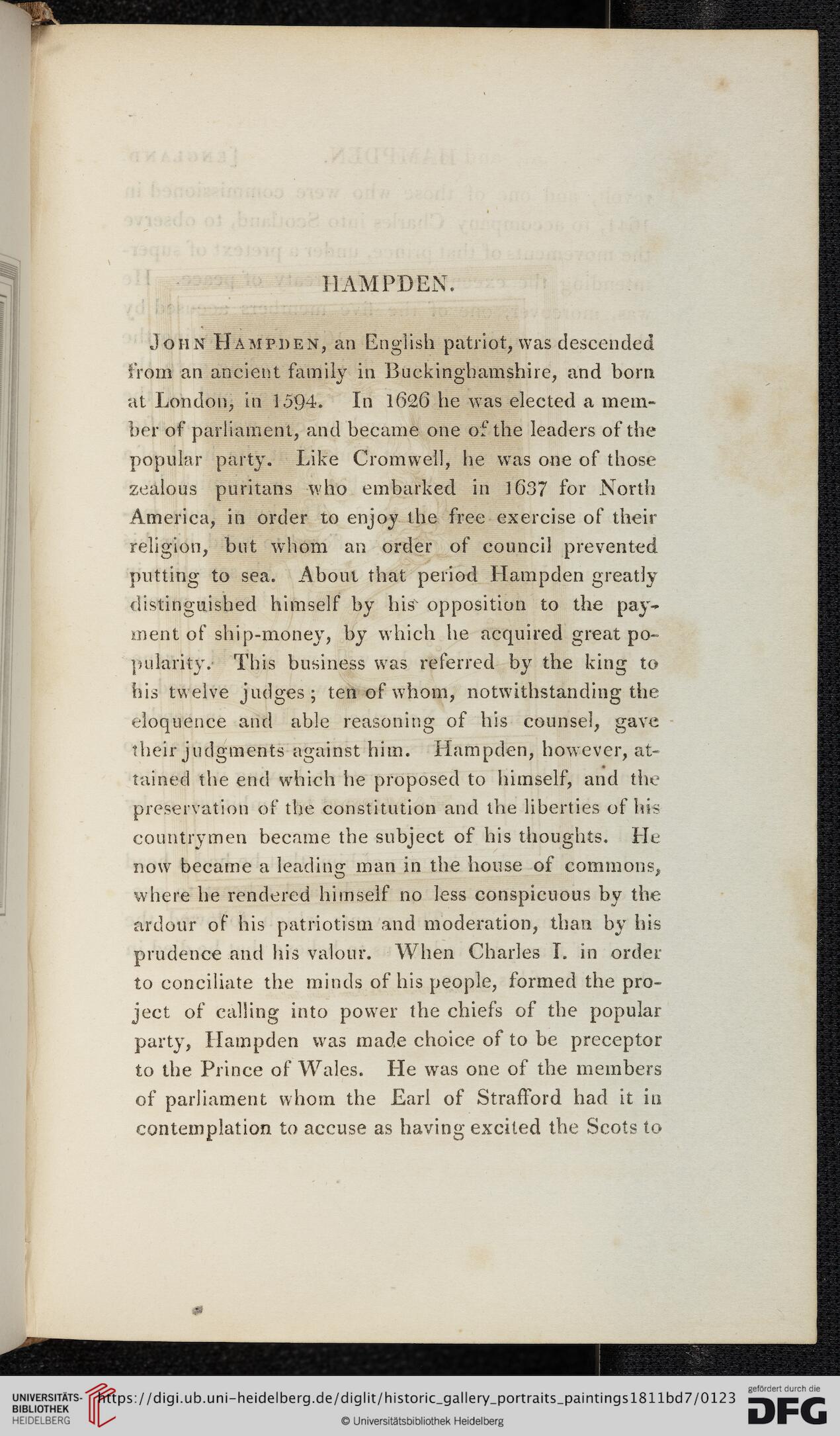HAMPDEN.
John Hampden, an English patriot, was descended
from an ancient family in Buckinghamshire, and born
at London, in 1594. In 1626 he was elected a mem-
ber of parliament, and became one of the leaders of the
popular party. Like Cromwell, he was one of those
zealous puritans who embarked in 1637 for North
America, in order to enjoy the free exercise of their
religion, but whom an order of council prevented
putting to sea. About that period Hampden greatly
distinguished himself by his opposition to the pay-
ment of ship-money, by which he acquired great po-
pularity.* This business was referred by the king to
his twelve judges; ten of whom, notwithstanding the
eloquence and able reasoning of his counsel, gave
their judgments against him. Hampden, how ever, at-
tained the end which he proposed to himself, and the
preservation of the constitution and the liberties of his
countrymen became the subject of his thoughts. He
now became a leading man in the house of commons,
where he rendered himself no less conspicuous by the
ardour of his patriotism and moderation, than by his
prudence and his valour. When Charles I. in order
to conciliate the minds of his people, formed the pro-
ject of calling into power the chiefs of the popular
party, Hampden was made choice of to be preceptor
to the Prince of Wales. He was one of the members
of parliament whom the Earl of Strafford had it in
contemplation to accuse as having excited the Scots to
John Hampden, an English patriot, was descended
from an ancient family in Buckinghamshire, and born
at London, in 1594. In 1626 he was elected a mem-
ber of parliament, and became one of the leaders of the
popular party. Like Cromwell, he was one of those
zealous puritans who embarked in 1637 for North
America, in order to enjoy the free exercise of their
religion, but whom an order of council prevented
putting to sea. About that period Hampden greatly
distinguished himself by his opposition to the pay-
ment of ship-money, by which he acquired great po-
pularity.* This business was referred by the king to
his twelve judges; ten of whom, notwithstanding the
eloquence and able reasoning of his counsel, gave
their judgments against him. Hampden, how ever, at-
tained the end which he proposed to himself, and the
preservation of the constitution and the liberties of his
countrymen became the subject of his thoughts. He
now became a leading man in the house of commons,
where he rendered himself no less conspicuous by the
ardour of his patriotism and moderation, than by his
prudence and his valour. When Charles I. in order
to conciliate the minds of his people, formed the pro-
ject of calling into power the chiefs of the popular
party, Hampden was made choice of to be preceptor
to the Prince of Wales. He was one of the members
of parliament whom the Earl of Strafford had it in
contemplation to accuse as having excited the Scots to




